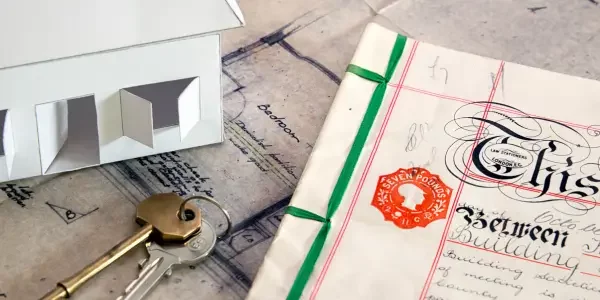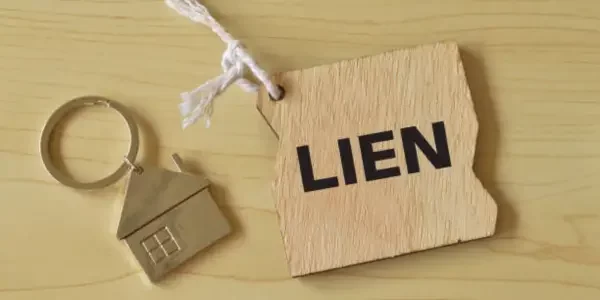
Table of Contents
- Understanding Property Liens in Maryland
- What Is a Lien and Why Does It Matter?
- Types of Liens in Maryland: A Closer Look
- Can You Sell a House with a Lien on it in Maryland?
- How Liens Are Resolved in a Sale
- Step-by-Step Guide to Selling a Home with a Lien
- How Liens Impact Home Sales
- Alternative Options to Selling a Home with a Lien
- Conclusion
- Frequently Asked Questions
Can You Sell A House with a Lien On It In Maryland?
Yes, you can sell your Maryland house with a lien on it in, but the lien must be resolved before closing so the buyer receives clear title. Liens, such as tax liens, judgment liens, or mechanics’ liens, are legal claims that show up in a title search and must be paid off or otherwise satisfied, usually using the sale proceeds at settlement. In some cases, sellers may negotiate with lienholders for reduced payoffs, or be required by the court to post a bond or obtain approval before a sale. Ultimately, the title company will not allow the sale to close until the lien is cleared or released, meaning you can sell the property, but the lien issue has to be addressed first.
The fastest way to move forward is to work with professionals who understand how liens work and can guide you through the steps needed to resolve them, saving you time and stress. At 3 Step Home Sale, we work alongside Maryland sellers to overcome liens and title issues, giving you the clarity and confidence to move forward with your home sale.
Get An Offer Today & Pick Your Close Date
Fill Out the Form and Our Team Will Call With Your Offer
What Is a Lien and Why Does It Matter?
A lien is a legal claim or hold placed on a property by a creditor to ensure the repayment of a debt or obligation. When a lien is filed, it essentially ties the debt to the property, making it a financial encumbrance that must be addressed. This can happen for various reasons, such as unpaid taxes, contractor bills, or court-ordered judgments. Once a lien is placed, the property cannot typically be sold or transferred to a new owner until the lien is resolved, either through payment, negotiation, or legal action.
Why Liens Are Important in Real Estate Transactions
Liens play a crucial role in real estate transactions because they impact the property’s title—the legal document proving ownership. A “clean title,” free of liens or encumbrances, is a prerequisite for most sales, as it ensures the buyer receives the property without the risk of inheriting the previous owner’s debts.
During the home-selling process, a title company conducts a title search to uncover any liens or claims on the property. If a lien is found, it must be resolved before the transaction can close. This can involve paying off the lien, negotiating a settlement, or using sale proceeds to clear the debt.

Failing to address a lien can derail the sale, delay closing, or even lead to legal disputes. For homeowners, understanding and resolving liens early in the process is essential to ensuring a smooth and successful transaction.
Get An Offer Today & Pick Your Close Date
Fill Out the Form and Our Team Will Call With Your Offer
Types of Liens in Maryland: A Closer Look
Liens can arise for various reasons, including unpaid taxes, contractor disputes, or court judgments. The most common types of liens Maryland homeowners face include:
1. Tax Liens
A tax lien is a serious financial claim placed on a property when the owner fails to pay property taxes, income taxes, or other government-imposed obligations. In Maryland, tax liens take priority over other debts and must be resolved before a property can be sold. If left unpaid, the government may initiate a tax sale, auctioning the property to recover the owed amount. However, many tax authorities offer options to negotiate a payment plan or allow the lien to be paid off using proceeds from the home sale, providing homeowners a chance to resolve the issue and move forward.
2. Mechanic’s Liens
A mechanic’s lien is filed by contractors, subcontractors, or suppliers who were not paid for services or materials provided for home improvements. In Maryland, these liens must be filed within 180 days of completing the work. Mechanic’s liens can complicate or delay a home sale, as buyers typically require a clear title to proceed. Homeowners often resolve these liens by negotiating a settlement with the contractor, ensuring the title is cleared before closing.
3. Judgment Liens
A judgment lien is created when a court rules in favor of a creditor, granting them the right to place a claim on your property. These liens remain attached to the property until the debt is fully paid or legally removed. Fortunately, judgment liens are often negotiable, allowing homeowners to settle for a lower amount than the original judgment, making it possible to resolve the issue and move forward with selling the property.

4. HOA or Condo Liens
Homeowners’ associations (HOAs) and condominium associations can file liens against properties for unpaid dues, fees, or fines. While HOA liens are typically subordinate to a mortgage, they must still be resolved before a property sale can close. Many associations are willing to negotiate and release the lien if the debt is paid using proceeds from the home sale, ensuring a smooth transaction for both parties.
5. Child Support Liens
A child support lien is imposed on a property when the owner has unpaid child support obligations. These liens are strictly enforced and must be resolved before the property can be sold. In some cases, payment plans or settlements can be arranged to satisfy the lien, allowing the sale to proceed without complications.
Can You Sell a House with a Lien On It in Maryland?
Absolutely! Having a lien on your property doesn’t mean you’re stuck with it forever. Maryland law allows homeowners to sell properties with liens, but it requires additional steps to ensure the debt tied to the property is addressed. Liens must typically be resolved or accounted for during the closing process, either by paying them off, negotiating a settlement, or using proceeds from the sale to satisfy the debt.

Selling a house with a lien on it in Maryland often involves working closely with a title company, a real estate attorney, and possibly negotiating with lienholders. These professionals help ensure the title is cleared and the property can legally transfer to the new owner. While liens can add complexity, they are manageable with proper preparation and guidance, allowing you to move forward with your sale confidently.
How Liens Are Resolved in a Sale
Resolving liens is an essential step in selling a property with a clean title. There are several ways homeowners can address liens during a sale to ensure the transaction proceeds smoothly:
- Paying Off the Lien:
The most common method is using proceeds from the sale to pay off the lien at closing. The title company facilitates this process by allocating the necessary funds to the lienholder before disbursing the remaining proceeds to the seller. This ensures the title is cleared for the buyer. - Negotiating a Settlement:
In many cases, lienholders are open to negotiation, especially if they prefer to avoid lengthy legal processes. Homeowners may be able to settle the debt for less than the full amount owed. For example, a lienholder may accept a lump-sum payment that is lower than the total debt in exchange for releasing the lien. - Transferring the Debt:
Although less common, some buyers may agree to take on the responsibility for the lien, particularly if they see value in the property and negotiate a lower purchase price to account for the debt. This arrangement requires clear communication and agreement between all parties, as well as approval from the buyer’s lender.
Each resolution method depends on the type of lien, the lienholder’s willingness to negotiate, and the specifics of the sale. Working with a real estate attorney or a title company is crucial to ensure the lien is properly handled, enabling a smooth and successful transaction.
Get An Offer Today & Pick Your Close Date
Fill Out the Form and Our Team Will Call With Your Offer
Step-by-Step Guide to Selling a Home with a Lien
| 1. Conduct a Title Search | A title search will identify any liens or encumbrances on your property. This is a critical first step, as it provides clarity on what needs to be resolved before selling. |
| 2. Understand the Lien | Determine the type of lien, the amount owed, and whether it is valid. Some liens may have expired or been filed incorrectly and can be contested. |
| 3. Contact the Lienholder | Reach out to the creditor to discuss your options. Lienholders are often open to negotiation, especially if they believe foreclosure or legal action is less favorable. |
| 4. Hire a Real Estate Attorney | Selling a home with a lien involves legal complexities that are best handled by a professional. A real estate attorney can ensure compliance with Maryland laws, negotiate with lienholders, and handle disputes. |
| 5. Disclose the Lien to Buyers | Transparency is key to building trust with potential buyers. Disclose the lien upfront and explain your plan for resolving it. |
| 6. Resolve the Lien Before Closing | Most liens are resolved during the closing process. The title company will ensure the lienholder is paid from the sale proceeds, clearing the title for the buyer. |
How Liens Impact Home Sales
Liens can affect the home-selling process in several ways:
- Delayed Timelines: Resolving liens takes time, which may delay the closing process.
- Reduced Buyer Interest: Buyers may be hesitant to purchase a property with unresolved liens.
- Lower Sale Prices: If the buyer agrees to take on the lien, they may request a significant discount on the purchase price.
Alternative Options to Selling a Home with a Lien
If selling your home isn’t feasible, consider these alternatives:
1. Refinancing the Lien – Refinancing allows you to pay off the lien by securing a new loan or mortgage. This option works well for homeowners with sufficient equity or good credit.
2. Negotiating a Settlement – Many lienholders are open to accepting less than the full amount owed, especially if the debt is old or difficult to collect.
3. Contesting the Lien – If you believe the lien is invalid, you can challenge it in court. A real estate attorney can help you determine if this is a viable option.
Important Maryland-Specific Considerations
- Mechanic’s Liens Deadlines: Contractors must file liens within 180 days of completing work. If not enforced in court within one year, the lien may expire.
- Tax Sales: Unpaid property taxes can result in a tax sale, where the government auctions your property. Address tax liens promptly to avoid this.
- Homestead Protections: Maryland offers limited protections for primary residences against certain liens, but these do not apply to tax or HOA liens.
Conclusion
Selling a house with a lien in Maryland may seem daunting at first, but it’s entirely possible with the right approach. By understanding the nature of your lien, taking proactive steps to resolve it, and seeking professional help when needed, you can overcome obstacles and achieve a successful sale.

Remember, liens are not the end of the road—they are simply challenges to be addressed. With transparency, preparation, and support from experienced professionals, you can turn these challenges into opportunities. Whether you’re paying off a tax lien, settling with a contractor, or resolving a judgment lien, the key is to stay informed and take action early.
At 3 Step Home Sale, we specialize in helping Maryland homeowners navigate complex real estate situations. If you’re ready to sell your house with confidence, contact us today for expert advice and personalized solutions.
Frequently Asked Questions
What is a notice of lien in Maryland?
Yes, you can sell a house with a lien in Maryland, but the lien must be satisfied before the buyer can get clear title. Most homeowners use the sale proceeds at closing to pay off the lien, and cash buyers often make this process faster.
Do I Have to Pay Off the Lien Before I Sell My House?
No, you don’t always need to pay off a lien before selling in Maryland, since it can usually be cleared at closing from the sale proceeds. If the lien is larger than the home’s value, negotiation with the creditor may be required.
How Does a Lien Affect the Selling Process and Timeline?
A lien can delay the sale because the title company must verify and arrange payment, but it doesn’t stop you from selling. Selling to a cash buyer usually speeds up the process, since they can clear liens quickly and close without lender delays.
Can I Sell My House Fast in Maryland Even With a Lien?
Yes, you can still sell your house fast in Maryland with a lien by working with a cash buyer. The lien is paid from the closing proceeds, and many cash buyers can close in as little as 7–14 days.
Still Have Questions? Visit our FAQ page.
Key Takeaways
- Can You Sell a House with a Lien on It? While liens can complicate a home sale, Maryland law allows properties with liens to be sold as long as the debts are addressed during the process. Proper planning, transparency, and professional support are crucial to ensure a smooth transaction.
- Liens Must Be Resolved Before Closing: Whether by paying off the lien with sale proceeds, negotiating a settlement, or transferring the debt under specific conditions, clearing the lien is essential to provide the buyer with a clean title and finalize the sale.
- Professional Guidance is Critical: Successfully selling a home with a lien requires working with real estate attorneys, title companies, and sometimes lienholders. These experts ensure compliance with Maryland laws, facilitate negotiations, and help clear the title efficiently.
Liens don’t have to keep you tied down. At 3 Step Home Sale, we help Maryland homeowners sell properties with liens, no courtroom drama, no delays. We’ll work with you through the lien details and buy your home as-is. And with our exclusive 30-Day Flex Stay™, you can close, get paid, and still have time to move without scrambling. Skip the stress and focus on what’s next.
Sell Your House Fast In:
Rockville | Bowie | Silver Spring | Severna Park | Upper Marlboro

